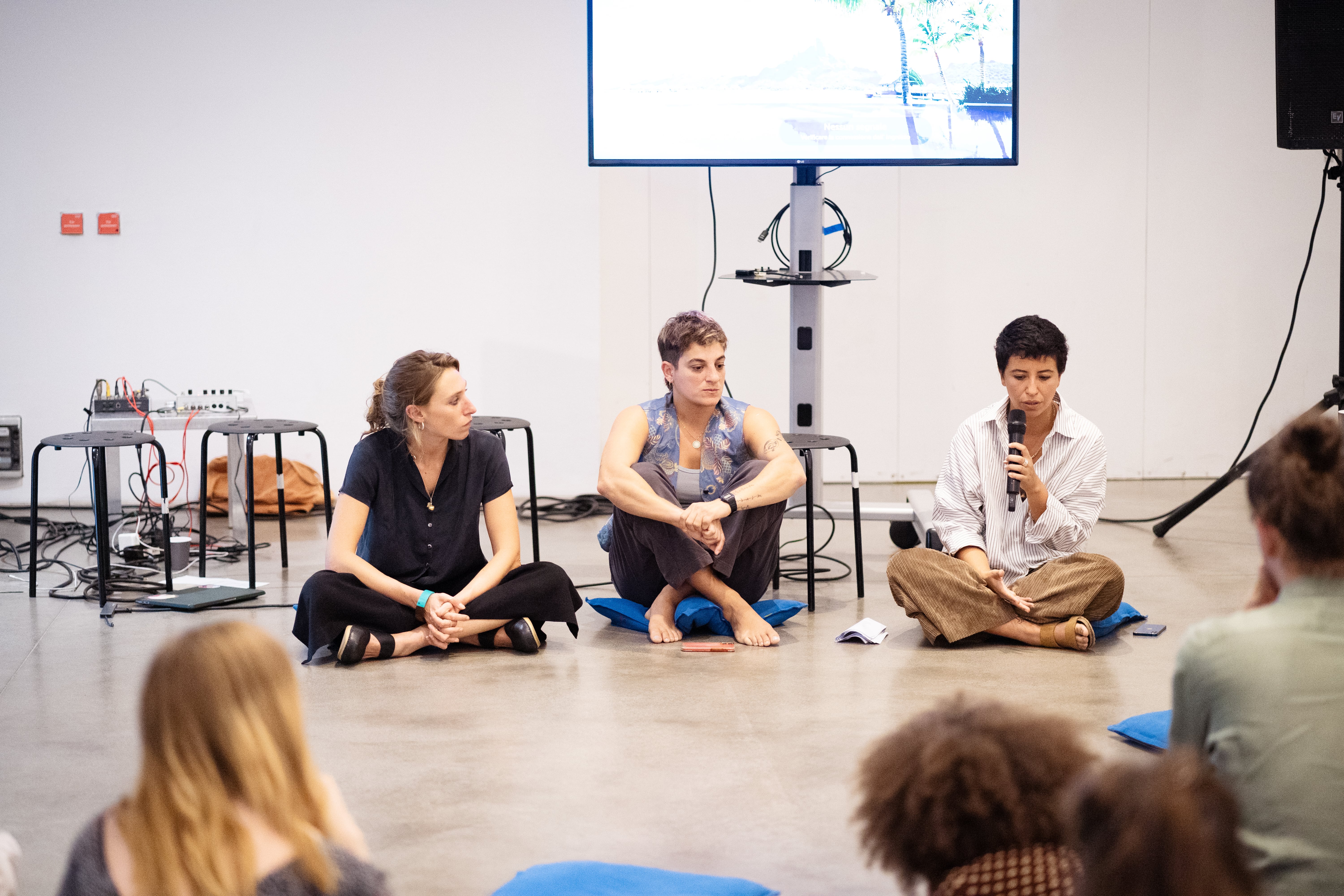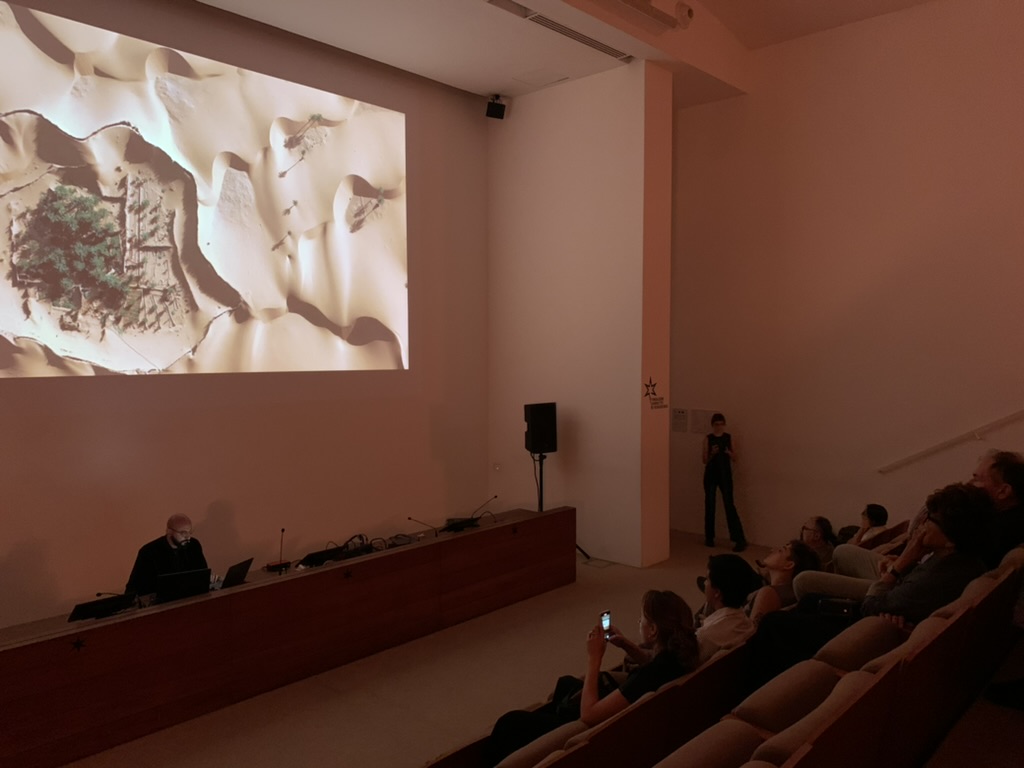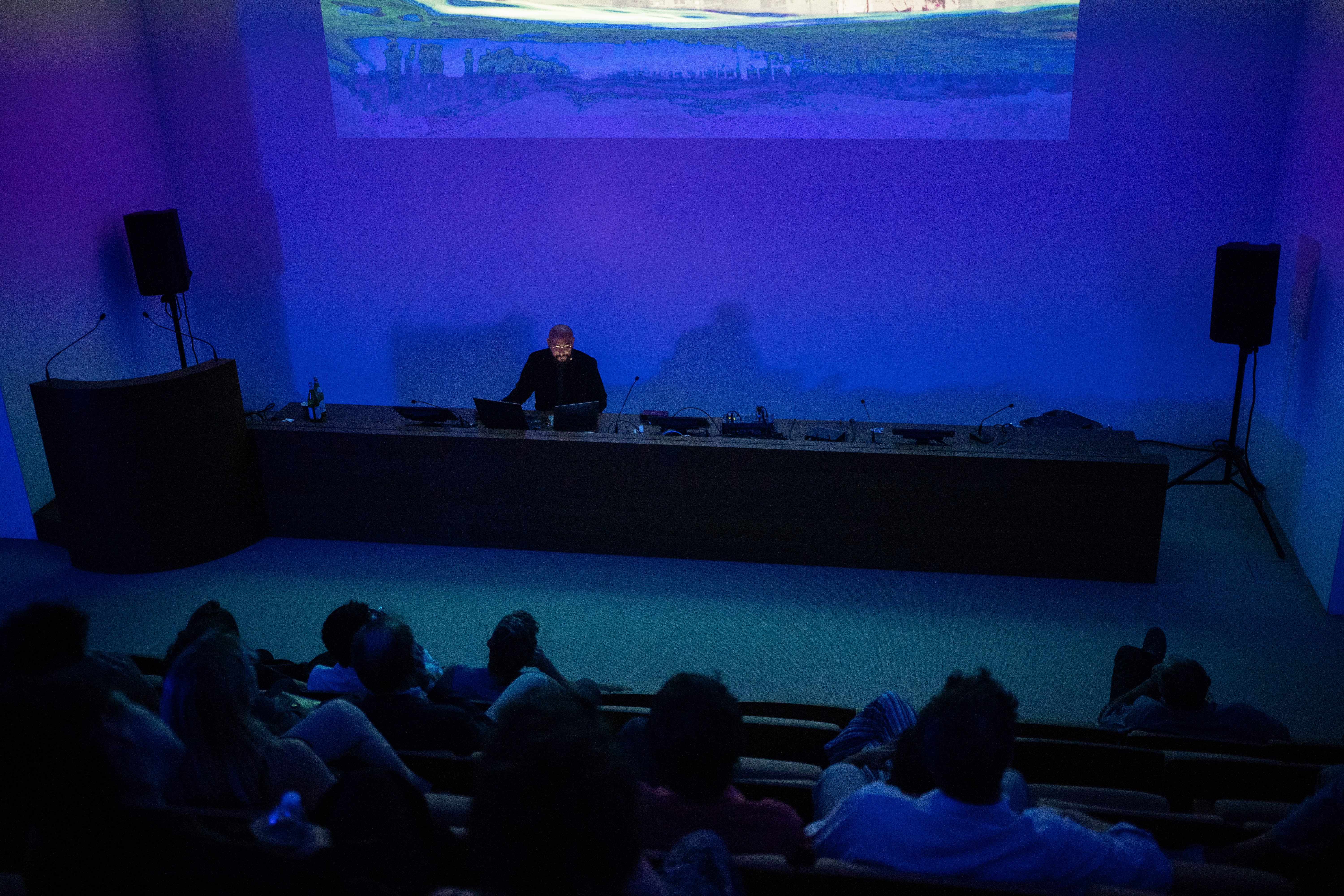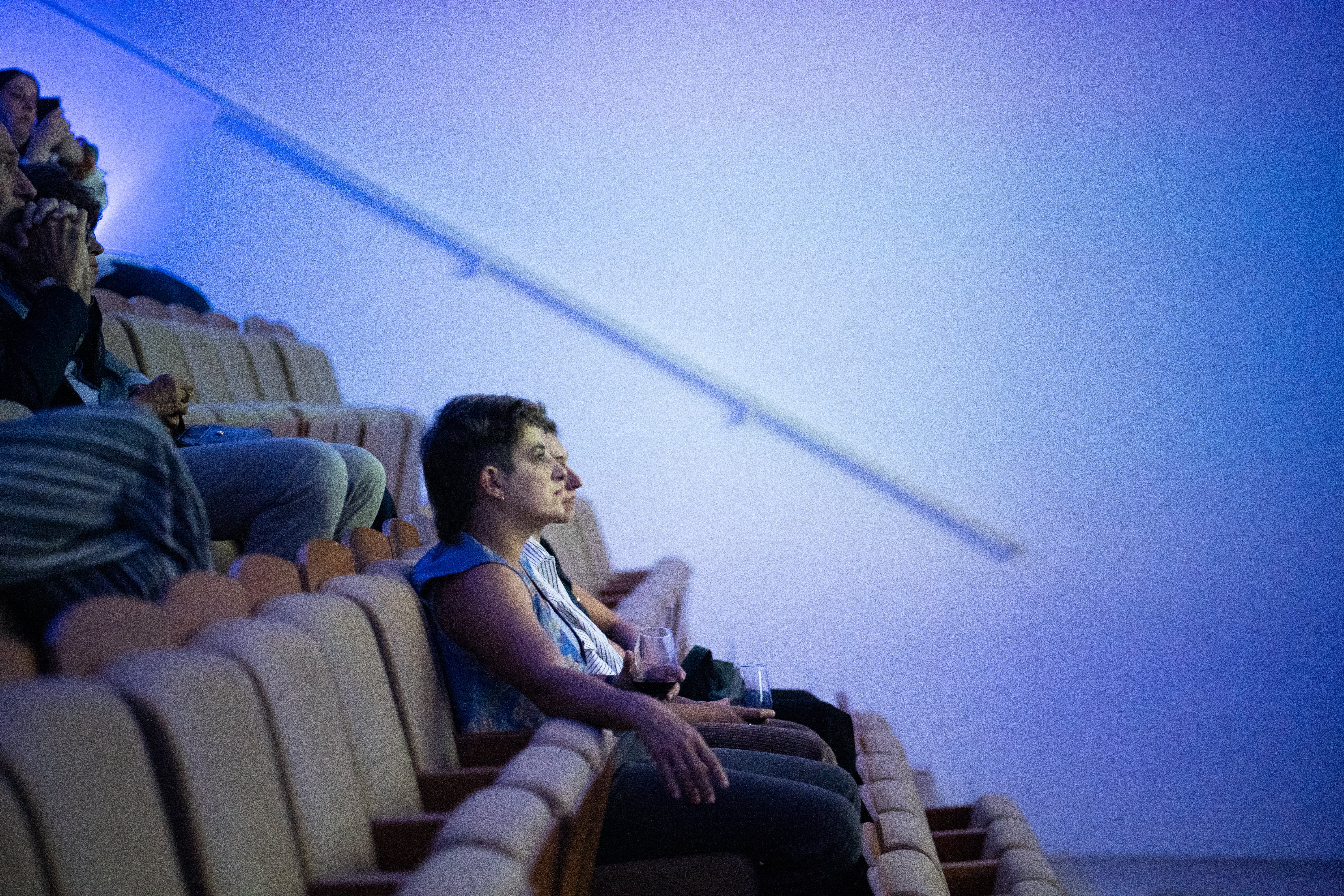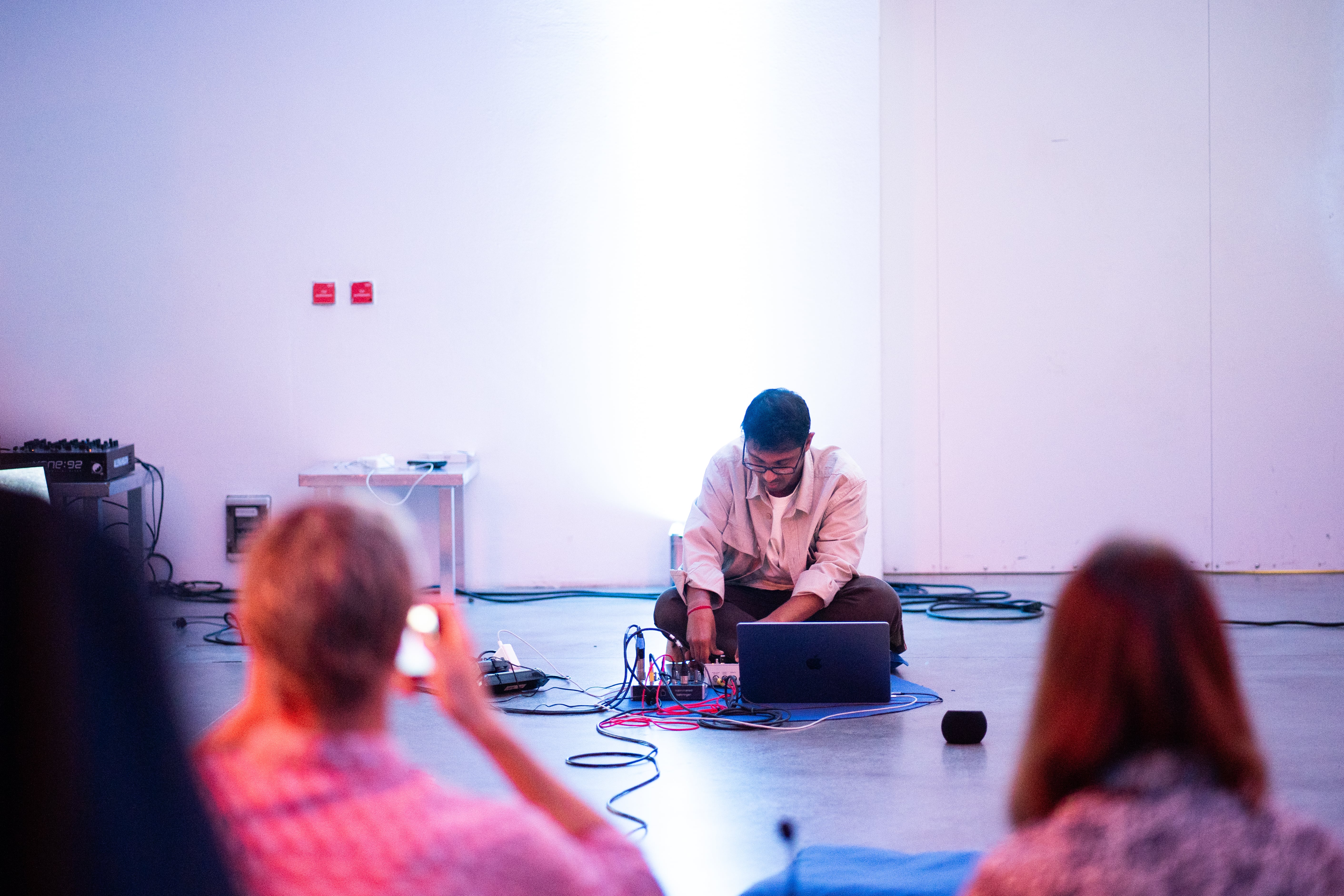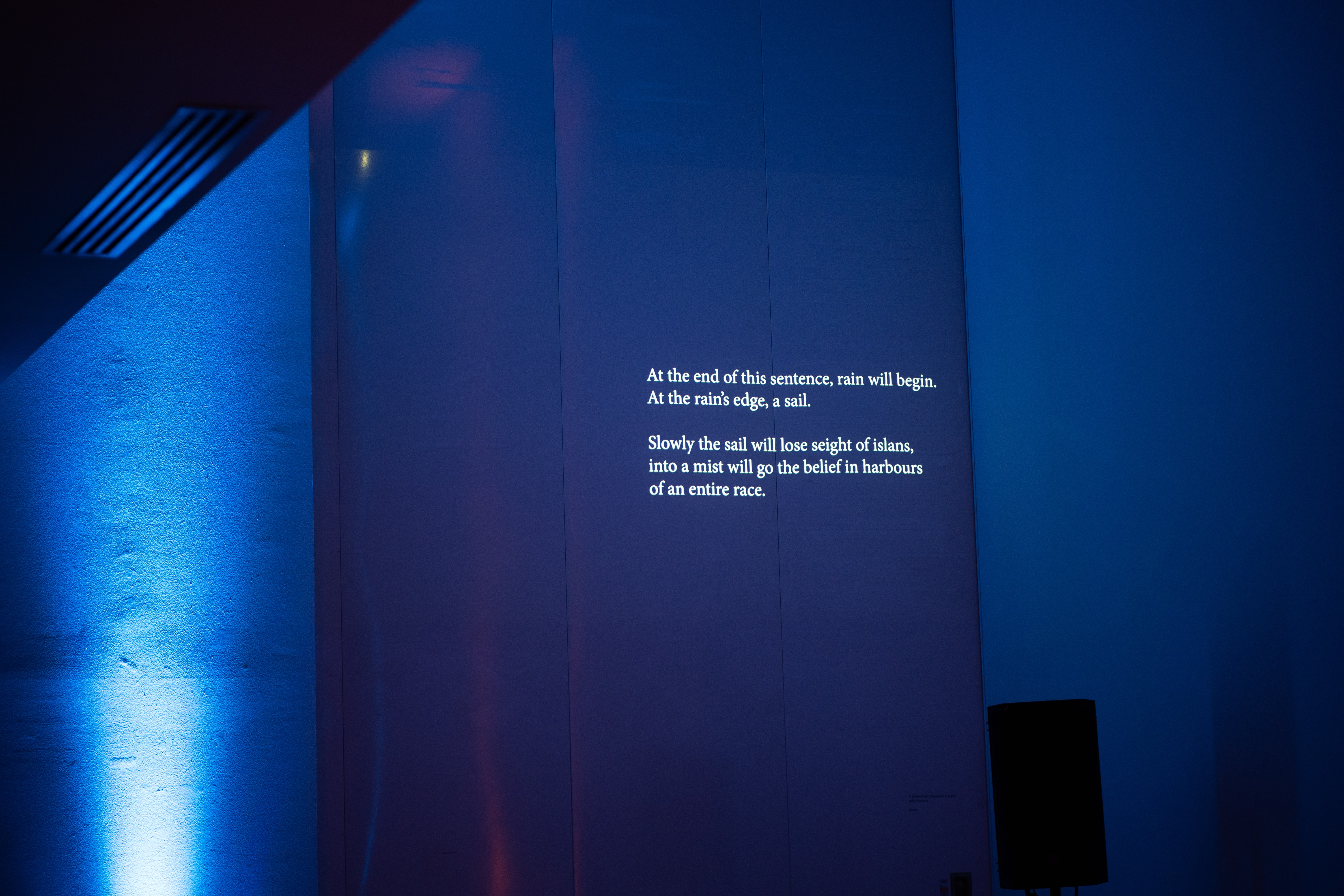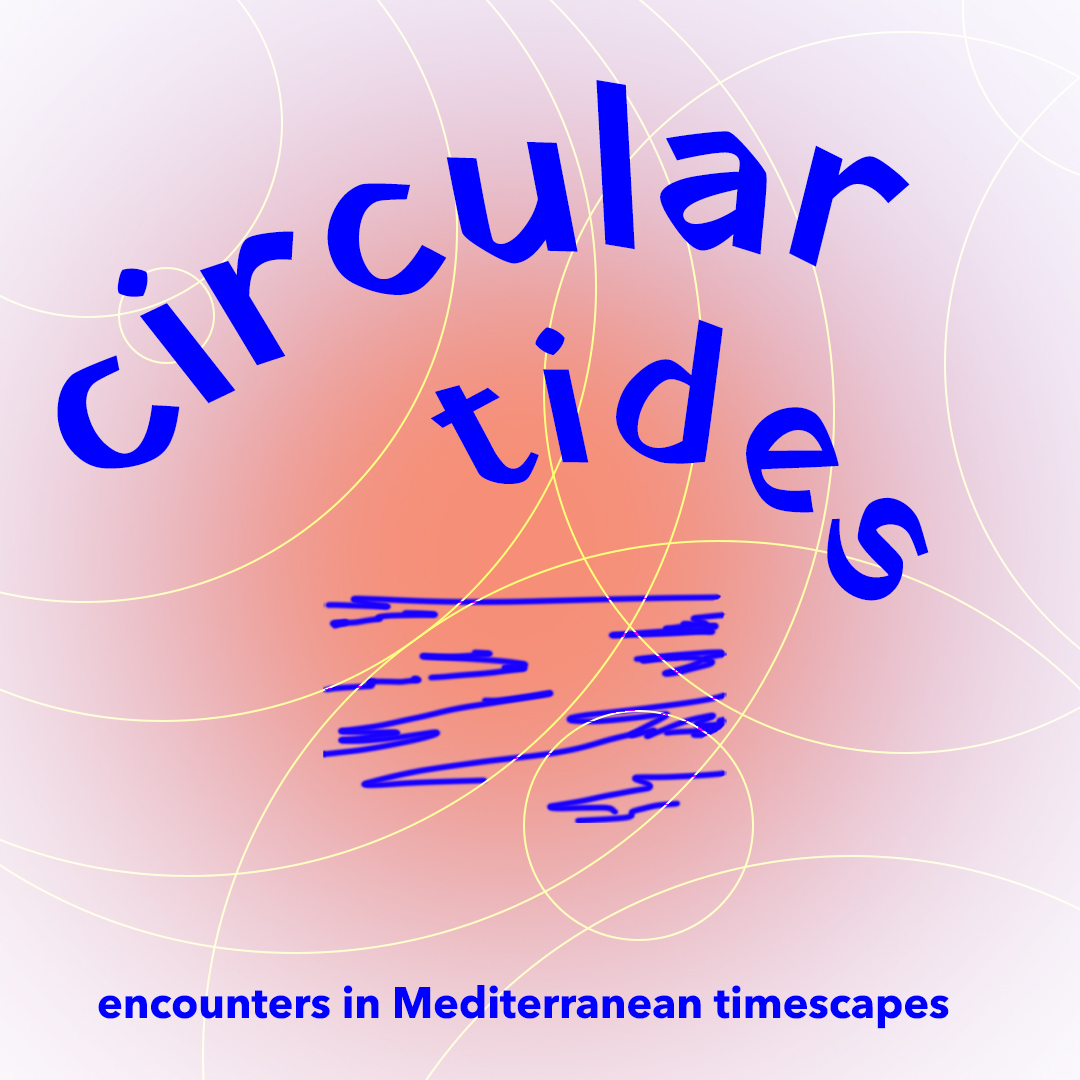
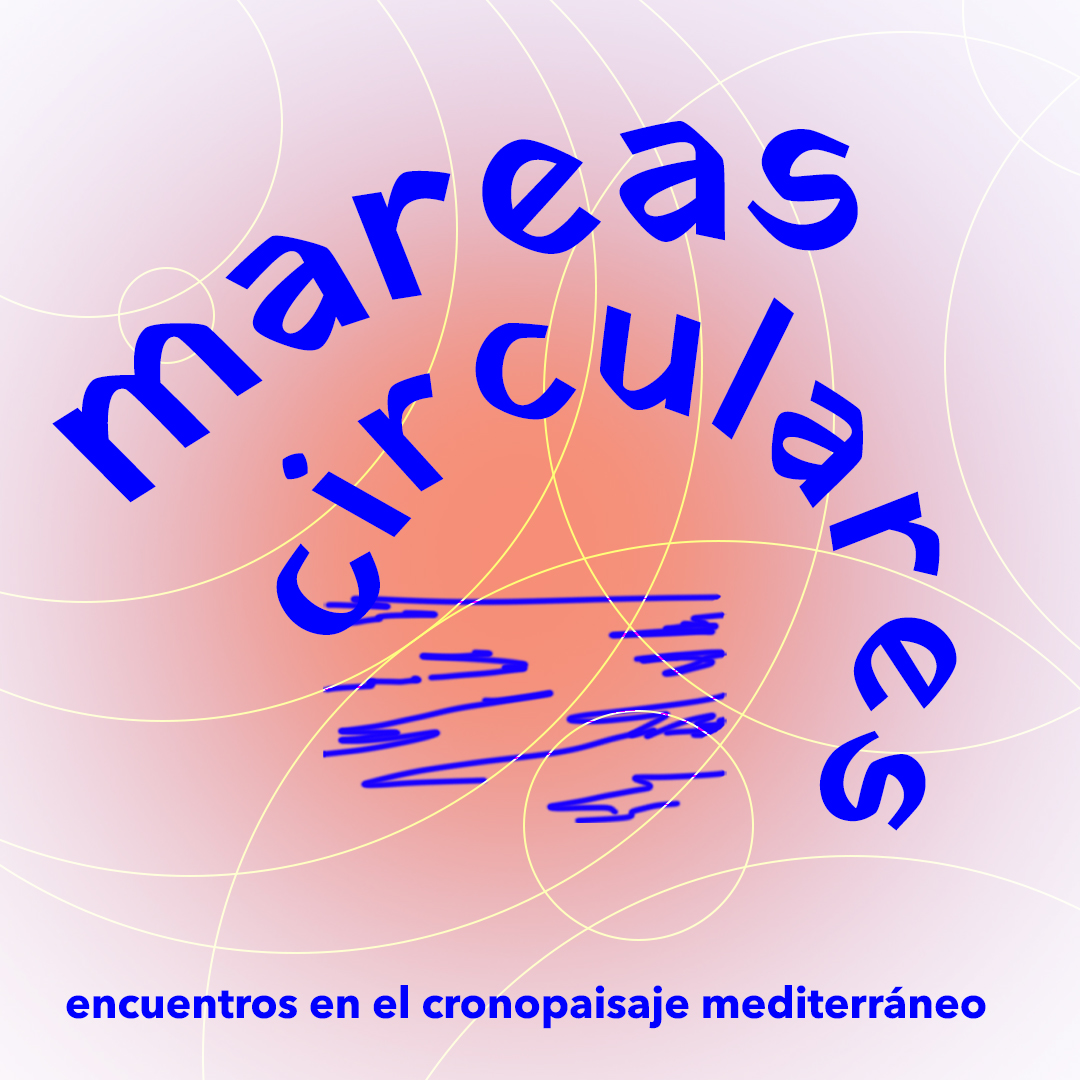
5-6 April 2024
La Escocesa, Barcelona
Circular Tides. Encounters in Mediterranean Timescapes
/ Mareas Circulares. Encuentros en el Cronopaisaje Mediterráneo
Catching a glimpse of un/desirable futures while standing on a lost shore, feet deep into a past that resurfaces without ever truly departing.
The two-day programme Circular Tides. Encounters in Mediterranean Timescapes invites to embark on a small tidal exploration of the temporalities woven into the fabric of the Mediterranean Sea, encountering some of the histories and stories carried within its waves.
Through their contributions, invited artists and researchers HUNITI GOLDOX, Mafe Moscoso & Helios (Ilyas) F. Garcés compose a narrative mosaic that delves into the viscosities of the historical Mediterranean – the seascape where Europe's colonial ambitions were first conceived and realised, and in which the West's imperial aspirations continue to manifest and act– to extend into speculative projections of deep post-human futurities. Inscribed in a space of open exchange, adopting the interlacing languages of sound, performativity and informal commonality, this gathering seeks to disrupt linear approaches to understanding the Mediterranean as a territory of worldmaking and resistance.
PROGRAMME
Friday 5th April
19:00h - La Escocesa
Presentation of the cycle Circular Tides. Encounters in Mediterranean Timescapes
The curator Chiara Cartuccia will introduce the event and talk with HUNITI GOLDOX, Mafe Moscoso and Helios (Ilyas) F. Garcés, artists and researchers invited to the programme.
19:30h - La Escocesa
“TOPO TERRA” LABORATOR - Screening-lecture by HUNITI GOLDOX
HUNITI GOLDOX presents a screening lecture that unveils new or hidden terrains that make or unmake geographies and their material composition and resistance. Set within a fictional laboratory framework, in response to a request from future inhabitants of the earth, the artists created an archive of digital and physical samples which they will traverse through stories, video screening and matter. Huniti Goldox’s research on ecology, enforced mutation and water politics of the last 5 years across Jordan, Tunisia, Germany and Albania will guide the different touch points of the journey. This frame will offer insights into the interconnectedness of ecological and geopolitical realities, intervention and violence inherent within.
This session will be in English. A written transcript of the presentation in Spanish will be available for those interested
20:30 - La Escocesa
Dj set
Music session by Serahboo.m
Saturday 6th April
From 11:00 to 13:30h - Barcelona Maritime Museum
The sea in the museum. Fiction and repairing colonial liquid wounds - Workshop by Mafe Moscoso and Helios F. Garcé
If the Mediterranean Sea was a means to explore and colonise other territories, how do colonial narratives take shape in 21st century Catalonia, what is the place of water in the museum, which stories are told and which are not, what are the crossovers between the Mediterranean Sea and colonial processes, is it possible to find areas of anti-racist resistance inside the Museum, and is it possible to find areas of anti-racist resistance inside the Museum?
The activity is divided into two parts. In the first part, we will take a tour of some of the pieces and objects in the museum. In the second part, we will turn to speculative fiction in order to carry out a writing experiment centred on the Mediterranean Sea, on the possibility of repairing colonial liquid wounds.
Workshop in Spanish
ARTISTS AND SPEAKERS
HUNITI GOLDOX is an artist duo composed by Areej Huniti and Eliza Goldox. The practice of HUNITI GOLDOX explores how political systems, transitions and violence are affecting water bodies and landscapes. Through contextual examinations of geopolitical realities, marginalised oral histories and mythologies they create films, videos, VR-works, installations, conversations, texts, in addition to formats that can involve different voices and beings, such as workshops, excursions and interventions.
Mafe Moscoso works, researches and writes at the crossroads between ethnography and fiction, from an anti-racist and transfeminist perspective. With a PhD in anthropology from the Free University of Berlin, she is currently a lecturer and researcher at BAU. She is a member of Gredits, the Euraca Seminar and is a member of LAAV_ (Laboratory for Experimental Visual Anthropology). Her main lines of research are memory, colonialism and migrations, water and ethnographic fiction. She has written the fiction book La Santita (Consonni, 2024), the essay Hostal España, el gesto hospedante, una etnografía hospedante (ed. Griffin, 2024), Biografía para uso de los pájaros: infancia, memoria y migración (2013), and the poetry book Desintegrar el hechizo. Versitos anticoloniales (2021), among others.
Helios (Ilyas) F. Garcés has written for the media and critical journals such as Diagonal, El Salto, La Marea, Ctxt and Tabula Rasa. As an activist, organiser and trainer, he has taken part in various political projects in the fight against racism in Spain. He is the author of the book Religión vs. Malcom X, musulmán de la liberación (Bellaterra, 2024).
Chiara Cartuccia is a curator and researcher based out of London. She is currently engaged in long-term research on the Mediterranean as invented/inventive geography, focusing on the ramifications of practical Mediterraneanism(s) in Euro-Mediterranean contexts. She is Visiting Curator 2022/24 at UNIDEE / Fondazione-Pistoletto, where she initiated and curates the biennial research project Neither on Land nor at Sea.
The programme emerges from a collaboration between La Escocesa and UNIDEE Residency Programs at Cittadellarte-Fondazione Pistoletto and is part of the research biennium "Neither on Land nor at Sea," a project exploring the risks and possibilities inherent in geographical imagination through a pluralistic and collective analysis of Mediterranean complexities.
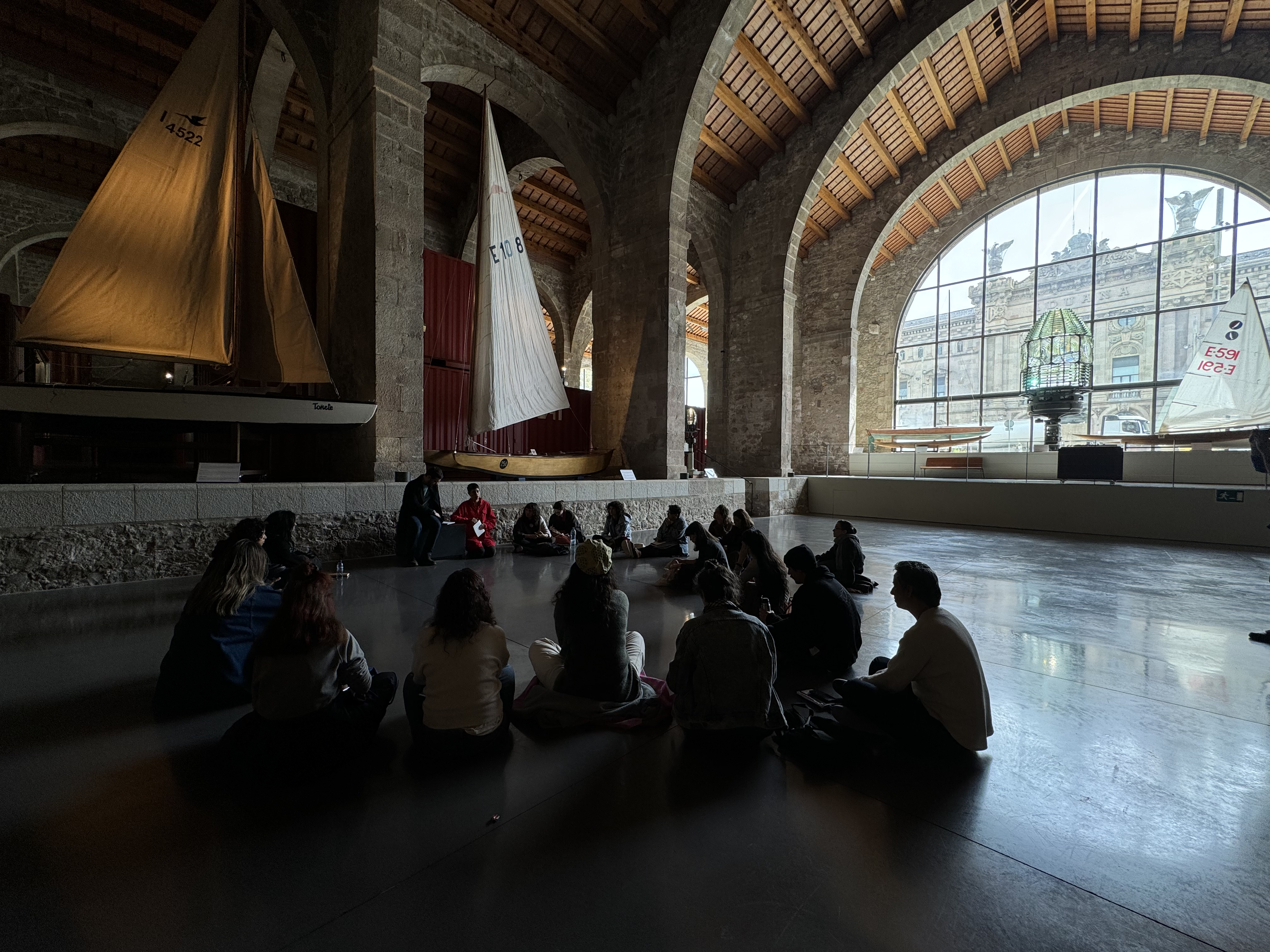
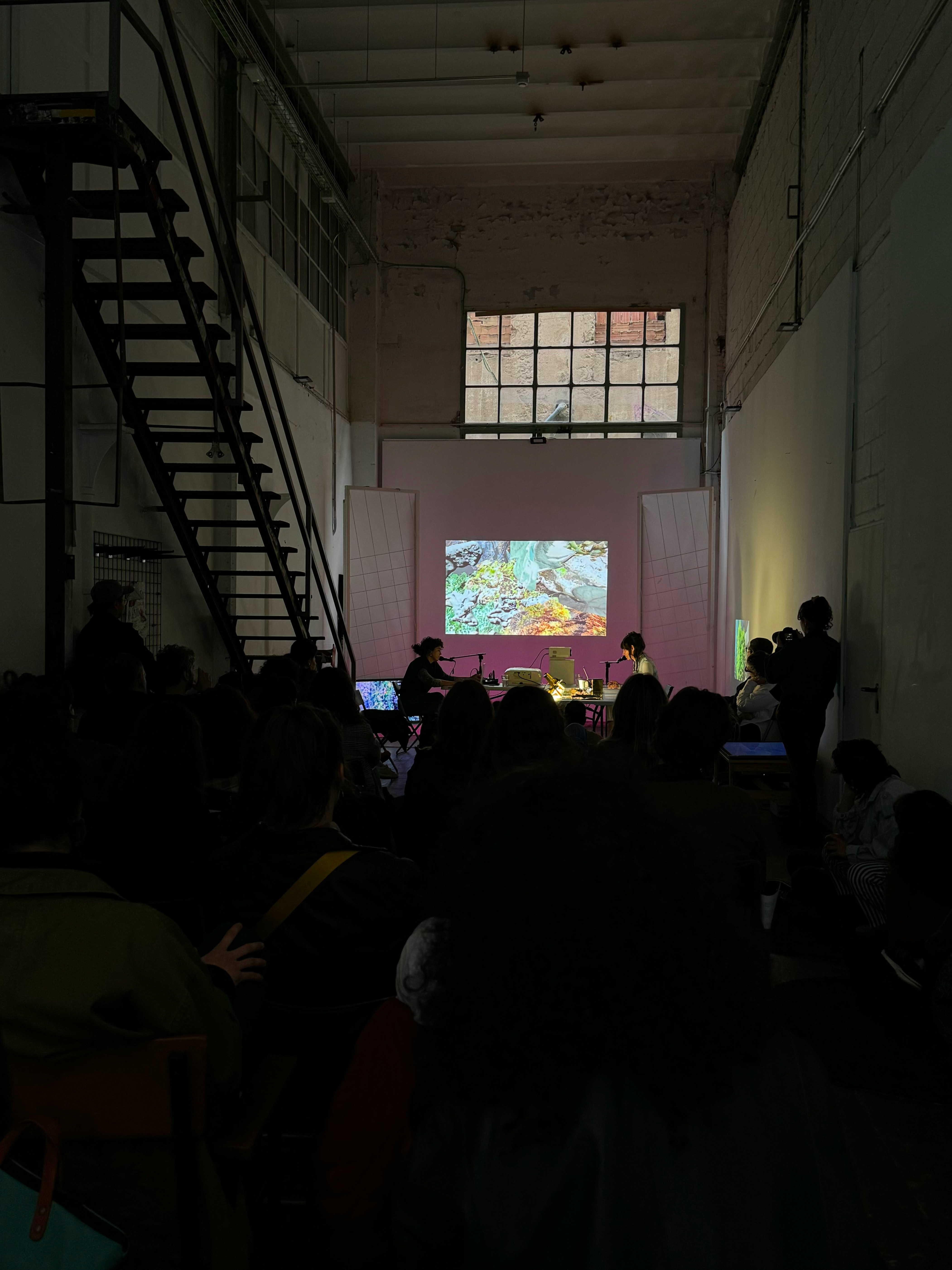
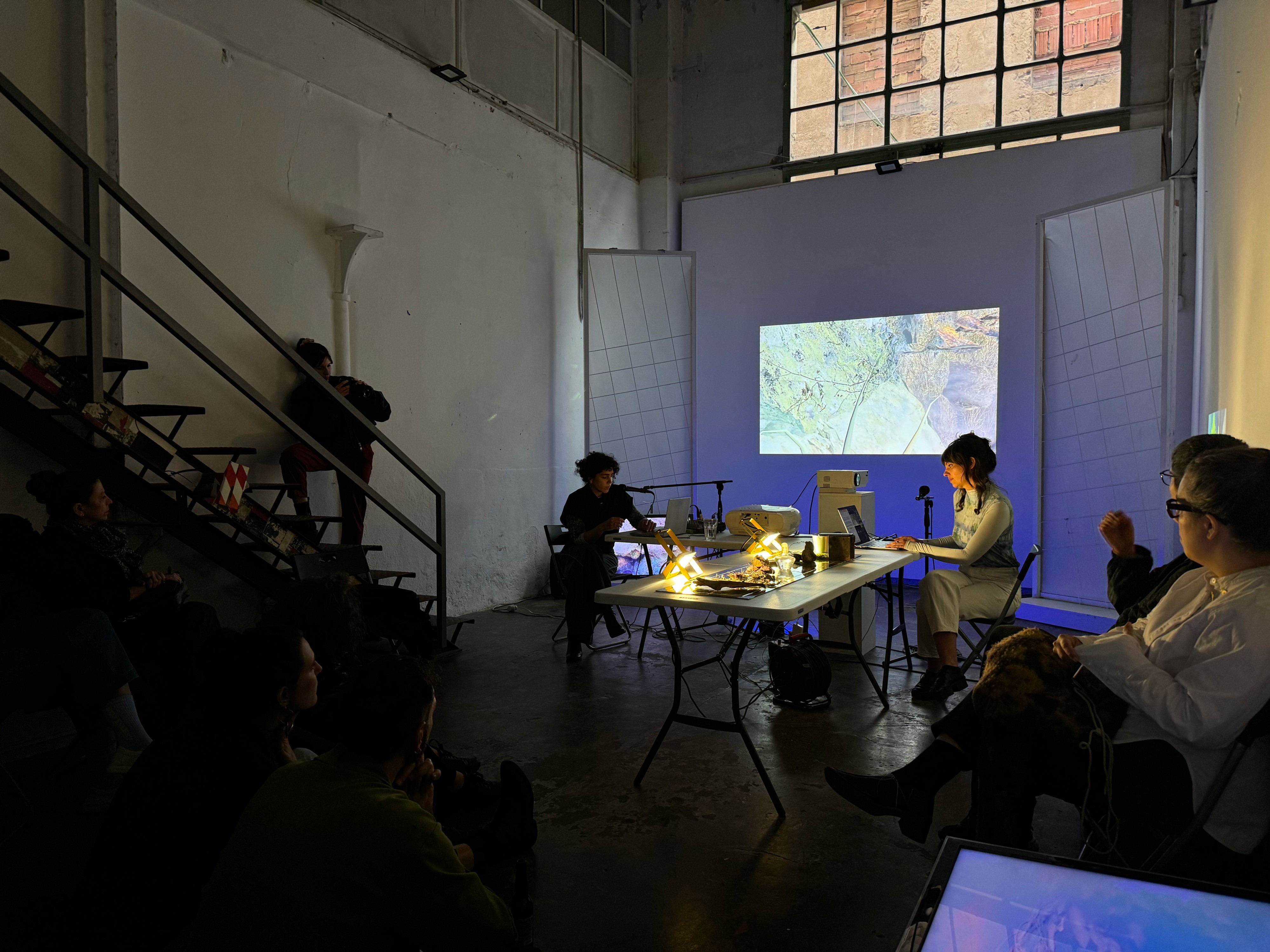
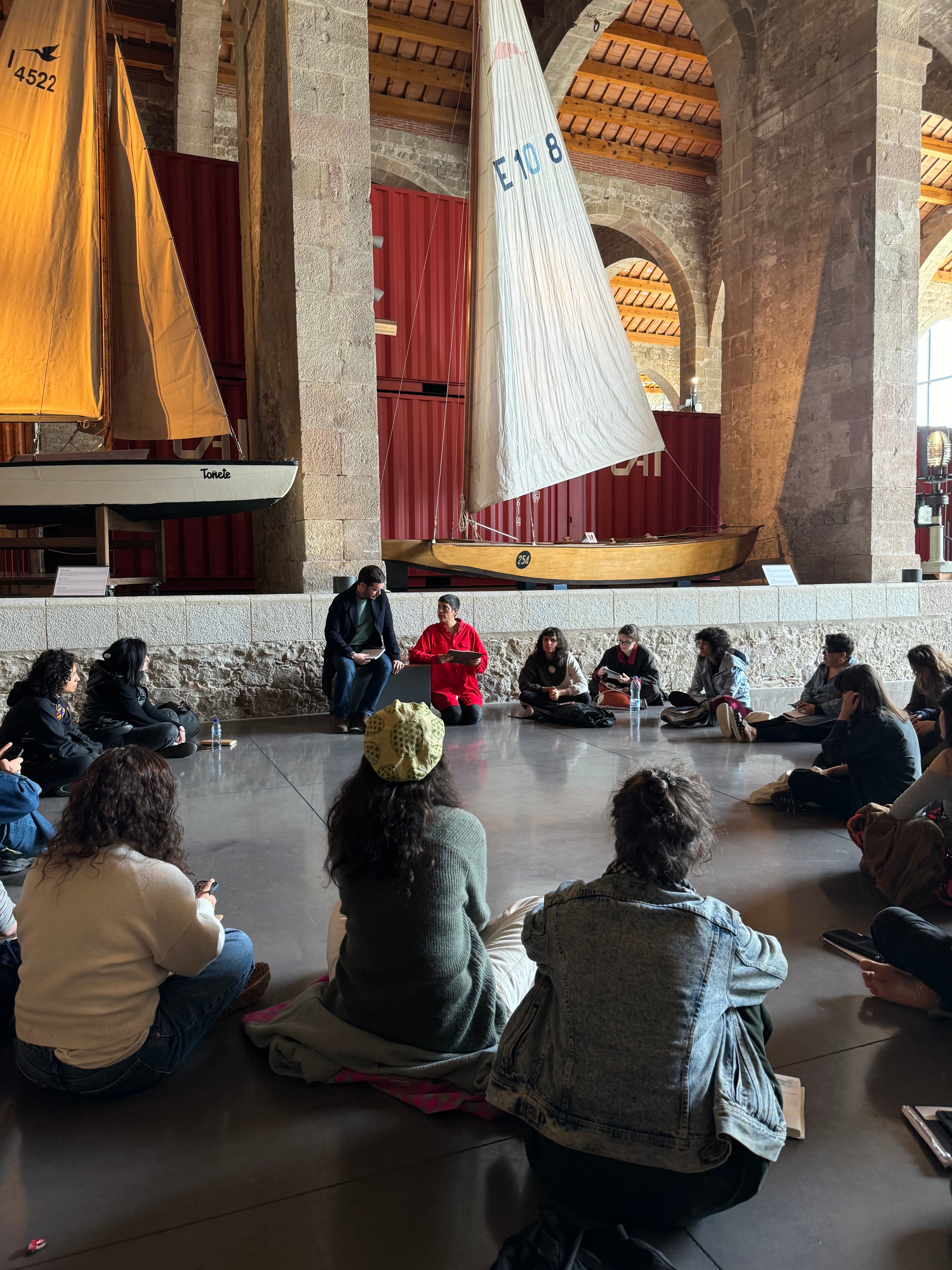
•••
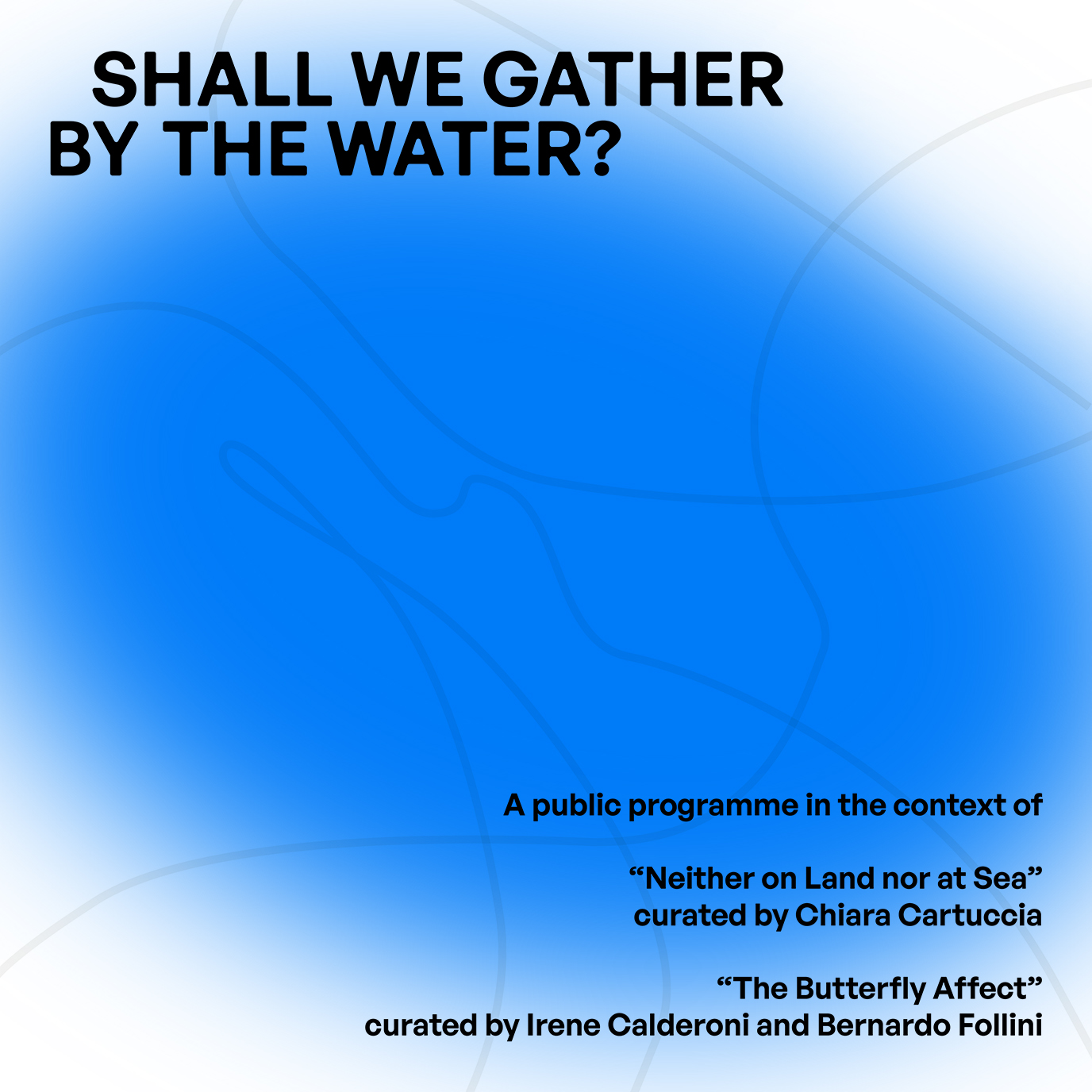
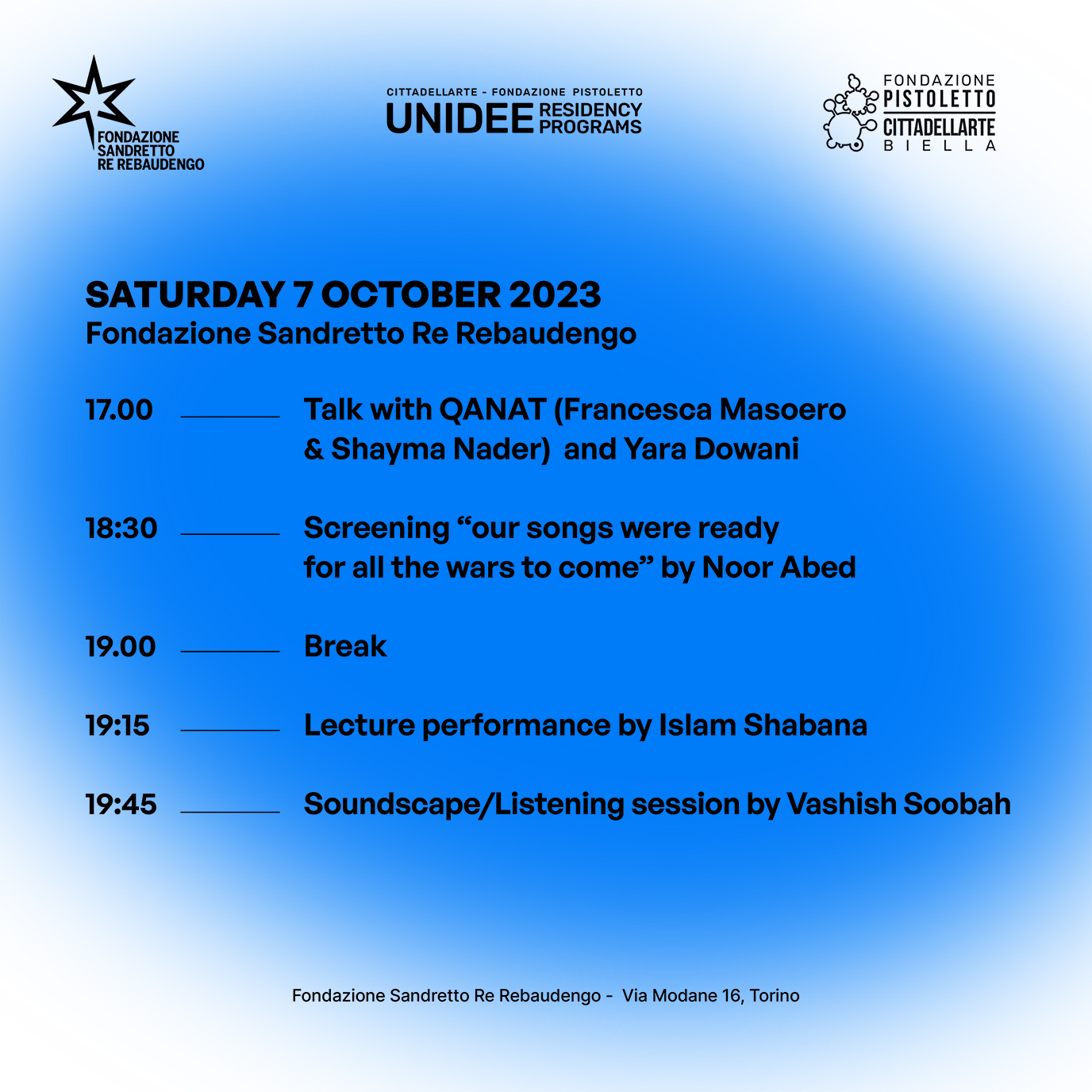
7 October 2023 from 5.00 pm
Fondazione Sandretto Re Rebaudengo, Torino
"Shall we Gather by the Water?" is a one-day discursive and performative programme delving into the intensities of connections and relationships tying together human and more-than-human worlds. It highlights interconnected processes of damage and care, affirmation and negation, shedding light on the intricate web of cause and effect active within the contested ecologies of today.
The programme is the result of an inter-institutional curatorial collaboration between Fondazione Sandretto Re Rebaudengo and UNIDEE / Cittadellarte-Fondazione Pistoletto. It builds on the conceptual terrain common to two projects: the exhibition “The Butterfly Affect”, curated by Irene Calderoni and Bernardo Follini, and currently on view at Fondazione Sandretto Re Rebaudengo, and the programme of residencies and public events “Neither on Land nor at Sea. Meeting by the Mediterranean Im/Possible”, curated by Chiara Cartuccia for UNIDEE-Residency Programs at Cittadellarte.
While “The Butterfly Affect” presents the sphere of trans-species affectivity as a locale where to imagine new paradigms of social and environmental coexistence, moving away from the prescriptions of extractive dominance, “Neither on Land nor at Sea”, adopting the un-grounded geographies and colliding historicities of a Mediterranean plural as meeting places, aims “to congregate to elaborate on the role played by situated practices and shared processes in the promotion of social transformations, towards epistemic justice”.
"Shall we Gather by the Water?" weaves together a series of shared moments, during which invited speakers and artists will contribute to a reflection on eco-social resistance, active vulnerability, and the fostering of meaning and significance through storytelling, poetry and the realm of sound. The programme offers the audience an opportunity to encounter the aforementioned topics in an open space of participation, exchange, and enjoyment, centred around the possibilities stemming from space/time sharing.
The opening talk explores the practices, research, and collective endeavours of curator, researcher, and cultural organiser Francesca Masoero, artist, curator, and translator Shayma Nader, and activist, researcher, and farmer Yara Dowani. This session introduces to the work of the curatorial platform QANAT and to its investigations into politics and poetics of water. Noor Abed's film, titled "our songs were ready for all wars to come", presents an inquiry into the critical role of 'folklore' as a source of knowledge and its potential connections to alternative social and representational models in Palestine. Islam Shabana's lecture performance, titled “The Geomorphosis Cycles”, addresses the concrete politics of human-made water crises in the cities of Alexandria (Egypt) and Marrakech (Morocco), incorporating speculative elements while letting voices from the myth meander through more-than-human scenarios. Finally, Vashish Soobah's soundscape/listening session, titled “Different vagues mais meme ocean”, weaves together a sonic and affective tapestry connecting the two oceanic spaces of the Mediterranean and the Indian Ocean, via poetics of the Caribbean, through an intimate diasporic perspective.
SPEAKERS AND ARTISTS
QANAT is a collective platform that explores the politics and poetics of water to reflect and act (up)on the multiple contextual understandings and forms of (re)production of the commons in Morocco, Palestine and beyond. Drawing from various forms of knowledge and acts of resistance and solidarity to dominant environmental narratives and injustices, QANAT aims to create spaces through which we can speculate upon new collective imaginaries to design new spatial and epistemological configurations for our cities. The collective develops archives of resonant reflections and actions that knit together local struggles into transnational patterns for nourishing debates across dispersed localities. QANAT was initiated at LE 18, Marrakech.
www.qanat.org
www.le18marrakech.com
Francesca Masoero works as a curator, cultural organiser and researcher. She is part of LE 18, a cultural space in Marrakech (Morocco), where she initiated QANAT. With a background in critical theory and political economy, she explores notions resistances in multiple forms, including testing collective-making processes within and beyond the art field, and researching the politics and poetics linked to watery worlds and to forms of being together otherwise. Since 2019, she has also been collaborating extensively with the Dar Bellarj Foundation (Marrakech - Morocco).
Shayma Nader is an artist, curator and translator from Palestine. For the past few years, she's been developing and organising workshops and projects focussed on forging and reactivating memories of and in the land through collective walking, listening and fictioning to move towards decolonial and land-centred imaginaries and practices. She is a member of Qanat; a collective platform exploring the politics and poetics of water, and a PhD candidate in artistic research at ARIA at Sint Lucas School of Arts and University of Antwerp.
Yara Dowani is a farmer, and a natural builder from Jerusalem. Her interest in farming started in 2017 after joining a permaculture design course in Palestine, and later by joining a research group studying perennial plants and edible wild plants in Palestine. Since 2018, she has been part of Om Sleiman farm and she contributed to many initiatives and movements working on agroecology and food sovereignty. Dowani’s current enquiry lies mostly in the educational part of farming and cooperatives forming.
Noor Abed works at the intersection of performance, media and film. Her works create situations where social possibilities are both rehearsed and performed. Abed’s work has been screened and exhibited internationally at Anthology Film Archives, New York, Gabes Cinema Fen Film Festival, Tunisia, Jihlava International Documentary Film Festival, The New Wight Biennial, Los Angeles, Leonard & Bina Gallery, Montréal, Ikon Gallery, Birmingham, Ujazdowski Centre for Contemporary Art, Warsaw, The Mosaic Rooms, London, and MAXXI - National Museum of 21st Century Art, Rome, among others. In 2020, she co-founded, with Lara Khaldi, the School of Intrusions, an independent educational collective in Ramallah, Palestine. Abed is currently a resident at the Rijksakademie in Amsterdam 2022-24 and was recently awarded the Han Nefkens Foundation/Fundació Antoni Tàpies Video Art Production Grant 2022.
Islam Shabana is an interdisciplinary artist and a digital media designer. Shabana’s work is situated in the intersection of technology with Islamic philosophy, mythology and studies of human cognition. In his works, he explores concepts such as system-social dynamics, religious performative rituals and occult practices, by means of poetry, simulation, science fiction and speculative scenarios. Examining how different technologies are interweaving these concepts producing/reproducing entangling structures between myth, fiction, and physical realities. Within such complex intersectional realms, the digital medium is emphasising the shift in cognitive processes, oscillating the human experience and imagination between reality and hyperreality, human and non-human, physical and mental spaces. Shabana’s work has been featured in exhibitions shown in Townhouse gallery in Cairo, Le18 in Marrakech with Qanat Collective, CCA Glasgow, Mucem in Marseille, Villa Romana in Florence, Onasis Air in Athens, The Mosaic Rooms in London, Berlin Art Week 2014. Audio/Visual performances featured in Boiler Room, VCU arts Qatar, The Royal Northern College of Music in Manchester, CTM festival in Berlin.
www.islamshabana.info
Vashish Soobah is a visual artist and filmmaker born in Sicily to Mauritian parents and raised in Brianza. His practice focuses on the concept of memory and migration, the meaning of home and identity, spirituality and issues related to the Mauritian diaspora through biographical and personal narratives. His research is characterised by a deep interest in musical experimentation, he collaborates with Raheem radio with a monthly show focused on mapping the Mauritian diaspora around the world. Soobah also explores others media such as photography, screen printing and in the last period he is using the technique of embroidery on fabrics influenced by his office work at a fashion brand. His works were exhibited at MA*GA in Gallarate (2022), Almanac Inn in Turin (2022), Marsel in Milan (2021), Oberdan space (2017) and published by magazines such as i-d, VICE, Il POST and Perimeter. On the occasion of the 28th ediBon FESCAAAL in 2017 Soobah presented the documentary "Nanì", which traces the history of his family through the eyes of his grandmother.
![]()
![]()
![]()
![]()
![]()
![]()
